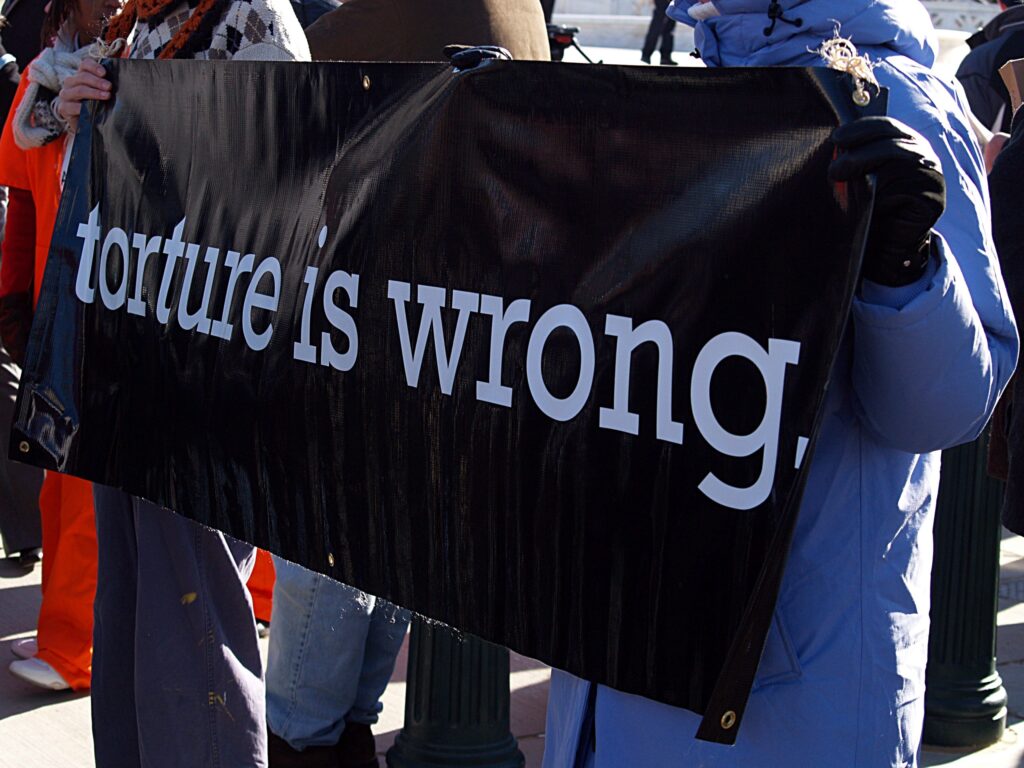This content introduces the topic of the ethics of torture, specifically in military interrogations. It outlines the main arguments surrounding the effectiveness of torture in gathering information quickly, but also highlights the doubts many experts have about its reliability. The moral implications of torture are discussed, with some arguing against it on the grounds of human rights violations, while others suggest that in extreme cases it may be morally justifiable to prevent catastrophic events. The “slippery slope” argument is also examined, warning of the potential consequences and erosion of a nation’s moral authority. The conclusion emphasizes the need for careful consideration and respect for human rights in military interrogations.
The Ethics of Torture: Debating its Effectiveness and Moral Implications in Military Interrogations
Introduction
Torture has long been a controversial and highly debated topic, particularly when it comes to its use in military interrogations. The ethical implications and effectiveness of torture have been at the center of discussions among scholars, policymakers, and the general public.
The Effectiveness of Torture
One of the main arguments used to support the use of torture in military interrogations is its supposed effectiveness in gathering information quickly. Proponents argue that torturing a suspect can make them more likely to reveal crucial information that could potentially save lives.
However, many experts argue that the effectiveness of torture in gathering accurate and reliable information is questionable at best. Torture often leads to the victim providing false or misleading information in an attempt to end the suffering. The extreme physical and psychological stress caused by torture can impair rational thinking and memory, leading to unreliable intelligence.
The Moral Implications of Torture
The moral implications of torture are perhaps the most significant aspect of this debate. The use of torture raises fundamental ethical questions about human rights, dignity, and the role of the state in ensuring the well-being of its citizens.
Many argue that torture is a violation of human rights and that no circumstances can justify subjecting an individual to such extreme pain and suffering. The prohibition of torture is enshrined in various international human rights conventions and treaties, including the United Nations Convention against Torture and Other Cruel, Inhuman or Degrading Treatment or Punishment. Advocates for a total ban on torture argue that it is a non-negotiable principle that should never be compromised.
Others take a more utilitarian approach, arguing that in some rare cases where lives are at stake, torture could be morally justified if it enables the prevention of a catastrophic event. They contend that the potential benefit of gaining access to vital information outweighs the harm caused by torture. However, this perspective still does not fully address the long-term consequences and potential backlash that may arise due to a state-sanctioned policy of torture.
The Slippery Slope Argument
Another important consideration in the ethics of torture debate is the “slippery slope” argument. Critics argue that by allowing torture in certain circumstances, a dangerous precedent is set, and it becomes easier to justify and expand the practice. They believe that once torture is deemed acceptable in extreme cases, it opens the door for its use in less severe situations and eventually becomes normalized.
Moreover, utilizing torture as a tool in military interrogations can undermine the moral authority and reputation of a nation. It not only damages the perceived legitimacy of the state’s actions but also erodes the support and trust of its own citizens. The use of torture can lead to a cycle of violence and retaliation, perpetuating a never-ending cycle of harm and compromising the moral high ground.
Conclusion
The ethics of torture continue to be a contentious issue, particularly when it comes to its use in military interrogations. The arguments surrounding its effectiveness and moral implications highlight the complex and nuanced nature of this debate.
While torture may seem like a tempting means to an end for gathering information quickly, its effectiveness is questionable and often leads to unreliable intelligence. The moral implications, including violations of human rights and the potential erosion of a nation’s moral authority, cannot be overlooked.
Ultimately, the ethics of torture require careful consideration and respect for the principles of human rights, dignity, and the long-term well-being of society. It is essential to seek alternative methods of interrogation that are effective, ethical, and in line with international human rights standards.
